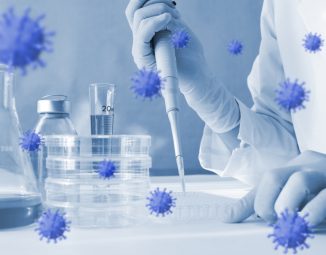Pennsylvania’s Plan of Action to Address the COVID-19 (Coronavirus) Pandemic
As Pennsylvania experiences its first cases of COVID-19 (a novel form of Coronavirus), with fourteen presumptive cases at the time of this writing, the Commonwealth is taking all necessary actions to combat the spread of the disease and keep Pennsylvanians informed as to how to best protect themselves. Currently, a majority of Pennsylvania’s cases have presented in Montgomery County, while other cases have been reported in Bucks, Delaware, Monroe, Philadelphia, and Wayne counties. According to reports, one patient is a cardiologist at the Children’s Hospital of Philadelphia’s King of Prussia campus. In response, the hospital has suspended services at its cardiology and adjacent allergy clinic and redirected patients to the hospital’s Philadelphia campus. In an abundance of caution, several area schools with students who may have been exposed to COVID-19 at the King of Prussia facility have been closed for sanitization.
On March 9th, the Pennsylvania Department of Health (“DOH”) convened a press conference to provide updates on the disease and the state’s response. Currently, DOH is focused on “contact tracing” to address the presumptively positive test results—a process that attempts to generate a list of individuals who have come into direct contact with the positive-testing patient, contact those individuals, and ask them to self-quarantine for 14 days. Experts currently estimate that the median incubation period (the length of time between infection and the manifestation of an illness) to be about five days, with 97.5% of patients who develop symptoms showing them within 11.5 days.
DOH is also preparing for instances of “community spread,” for potential cases of COVID-19 that cannot be traced to either recent travel or direct contact with another exposed individual. As of now, no cases are due to community spread.
At a press conference on Tuesday, March 10th, DOH reiterated that it is currently operating in a “containment phase,” meaning that every case is subject to investigation to determine the source of exposure. If DOH finds cases caused by community spread, it will shift to a “mitigation phase” in areas where such spread occurs. DOH will then amplify its efforts to ensure social isolation of exposed individuals and in high-risk areas.
Nonetheless, as of Wednesday, March 11th, DOH has yet to recommend that residents cancel social events as the instances of COVID-19 in Pennsylvania remain low. Rather, public health officials recommend that residents take the same steps that typically reduce transmission of the flu or other viruses. The virus is most commonly spread through contact with respiratory droplets, which can be avoided by thoroughly washing hands, avoiding touching of the face, and covering coughs and sneezes.
To stay up to date on the disease’s spread, DOH has requested that all County and Municipal Health Departments and hospitals promptly report any potential new cases.
Governor Tom Wolf announced on March 9th that all major health insurers providing comprehensive medical coverage in Pennsylvania will cover COVID-19 diagnostic tests. These insurers have also agreed to waive any patient cost-sharing to increase access to testing to ensure that “out-of-pocket costs do not serve as a barrier to the diagnoses and care of Pennsylvanians.” Additionally, the CDC and Pennsylvania are analyzing tests with no costs to insurers to further reduce barriers to testing.
For updates on COVID-19 information and the virus’s presence in Pennsylvania, visit:
Larry Konyves, a Drexel Law School Co-op Student, is a contributor to this article.
The information contained in this publication should not be construed as legal or medical advice, is not a substitute for legal counsel or medical consultation, and should not be relied on as such.






